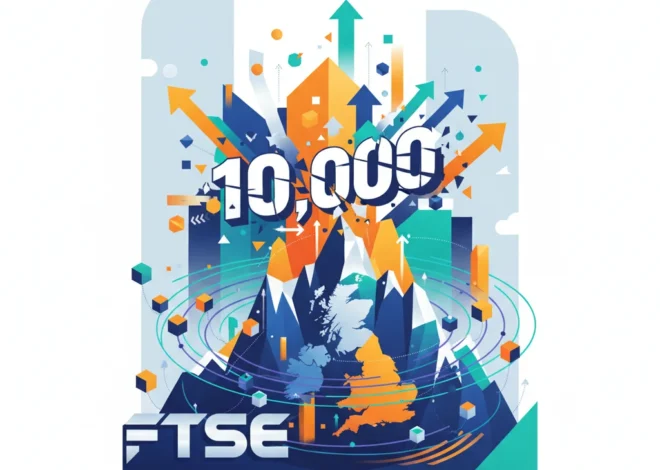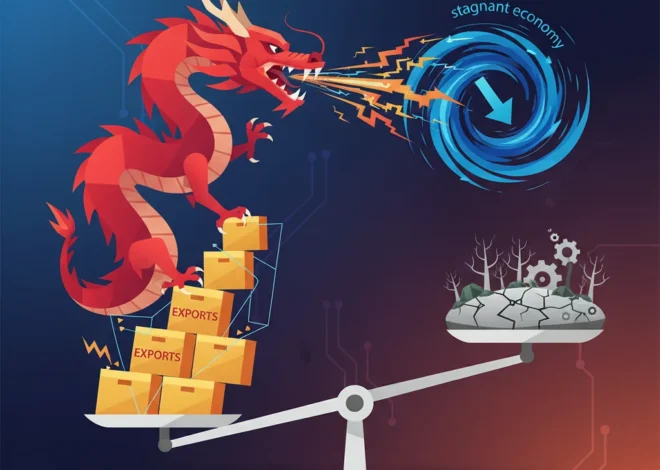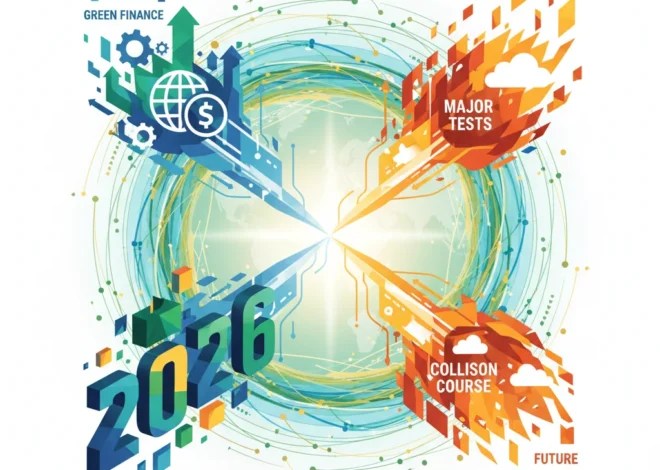
The Good Will Hunting Economy: What a 90s Film Reveals About Gen Z, Asset Ownership, and the Future of Investing
In the critically acclaimed 1997 film Good Will Hunting, the protagonist’s apartment is more than just a setting; it’s a character in itself. The sparse, borrowed rooms in South Boston are, as the Financial Times aptly described, a “visual shorthand for living temporarily.” Will Hunting, a mathematical genius working as a janitor, lives a life of profound impermanence, both emotionally and materially. His home is not a sanctuary of stability but a transient station, reflecting a deep-seated refusal to commit to a place, a future, or even his own potential.
Two and a half decades later, this cinematic depiction of temporary living has transcended fiction to become the defining economic reality for a generation. For Gen Z, the concept of Will’s bare-bones apartment resonates not as a sign of emotional turmoil, but as a pragmatic response to a complex modern economy. This shift has staggering implications for everything from real estate and banking to the very fabric of our financial markets and investment philosophies.
The Economics of Impermanence: From a Character’s Choice to a Generation’s Reality
Will Hunting’s reluctance to furnish his life with permanence was a psychological choice. For many born between the mid-1990s and early 2010s, it’s a matter of economic necessity. This generation entered adulthood facing a confluence of financial headwinds: soaring student debt, wage stagnation relative to inflation, and a housing market that has become increasingly inaccessible. The traditional markers of stability, like homeownership, have shifted from an expected milestone to a distant aspiration.
Consider the data. While homeownership has long been the bedrock of American wealth creation, the barrier to entry is higher than ever. According to a 2023 report, nearly 79% of Gen Z renters say they want to own a home someday, but affordability remains their single greatest obstacle (source). This isn’t just a feeling; it’s a mathematical reality driven by an economic landscape vastly different from the one that greeted previous generations. This has led to an “asset-light” lifestyle, where long-term financial commitments are replaced by the flexibility of renting and subscription models.
This prolonged state of “temporary living” fundamentally alters financial behavior. When the largest asset class—real estate—is out of reach, capital must find new homes. This has catalyzed a paradigm shift in personal finance and investing, powered by the rise of financial technology.
The Plastic Wars: Ineos's Billion-Dollar Stand Against a Flood of Cheap Imports
Untapped Potential as an Undervalued Asset Class
A central theme of Good Will Hunting is the discovery of an immensely valuable, deeply undervalued asset: Will himself. He is a generational intellect hidden in plain sight, his potential unrecognized by the traditional “market” of academia and corporate recruiting. It takes a discerning eye—that of Professor Lambeau—to spot the opportunity.
This narrative serves as a perfect metaphor for the modern investment landscape, which is increasingly defined by the hunt for the next undervalued asset. The rise of fintech and the democratization of trading platforms have empowered a new class of retail investors to play a role once reserved for institutional giants. They are searching for their own “Will Hunting” in the stock market, in cryptocurrencies, and in other alternative assets.
This search is enabled by a revolution in financial technology:
- Democratized Trading: Fintech platforms have eliminated commissions and lowered the barrier to entry for stock market participation, allowing individuals to invest with small amounts of capital.
– The Rise of Alternative Assets: The difficulty in accessing traditional assets like real estate has pushed Gen Z investors towards alternatives. Cryptocurrencies and blockchain-based assets, while volatile, represent a new frontier where they feel they can get in on the ground floor—a digital parallel to finding genius in a South Boston bar.
– Information Arbitrage: Just as Will’s genius was hidden from the establishment, today’s investors use social media and online communities to unearth information and identify trends before they hit the mainstream, creating opportunities in a highly efficient market.
This behavioral shift is not just about making money; it’s about participating in an economic system that has often felt exclusionary. It’s a reclamation of agency in a financial world where traditional ladders of wealth creation have been pulled up.
Redefining the Portfolio for a Transient World
Given this new reality, how should investors, business leaders, and financial professionals adapt? The “Good Will Hunting Economy” requires a new playbook. The strategies that built wealth over the past 50 years may not be sufficient for the next 50.
The following table illustrates the contrasting investment philosophies that are emerging between generations, driven by their unique economic circumstances:
| Investment Characteristic | Traditional Approach (e.g., Baby Boomers) | Emerging Approach (e.g., Gen Z) |
|---|---|---|
| Primary Asset Goal | Homeownership, Real Estate | Liquid Investments, Diversified Digital Assets |
| Information Source | Financial Advisors, Mainstream News (WSJ, FT) | Social Media (Reddit, X), Niche Newsletters, Peer Groups |
| Preferred Asset Classes | Mutual Funds, Bonds, Blue-Chip Stocks | ETFs, Individual Stocks, Cryptocurrency, Fractional Shares |
| Risk Tolerance | Lower; focus on wealth preservation | Higher; focus on high-growth potential |
| Financial Intermediary | Traditional Banks, Full-Service Brokerages | Fintech Apps, Robo-Advisors, Decentralized Finance (DeFi) |
This data, synthesized from various market studies like a recent analysis by the CFA Institute, highlights a clear trend. For investors, this means looking at the companies and technologies enabling this shift. The entire ecosystem of financial technology—from trading apps and robo-advisors to blockchain infrastructure—is a direct play on these evolving behaviors. For business leaders, it means understanding that their future employees and customers operate with a different financial mindset, one that prioritizes flexibility, digital-native experiences, and authenticity over legacy and tradition.
The 0 Million Handshake: Decoding Goldman Sachs' Record-Breaking EA Deal
“I Had to Go See About a Girl”: Investing with Purpose
Perhaps the most poignant lesson from Good Will Hunting comes at its conclusion. After being offered prestigious, high-paying jobs that represent the pinnacle of traditional success, Will rejects them all. He leaves a simple note for his therapist: “I had to go see about a girl.” He chooses an uncertain, emotionally-driven path over a secure, lucrative one.
This mirrors the growing importance of value-aligned investing, particularly among younger generations. The decision of where to allocate capital is becoming less about pure profit maximization and more about supporting companies that align with personal values. The explosive growth of ESG (Environmental, Social, and Governance) investing is a testament to this. A 2023 survey found that 82% of Gen Z investors are interested in sustainable investing (source), viewing their portfolio as an extension of their identity and a tool for effecting change.
This isn’t just altruism; it’s a sophisticated economic calculation. The logic is that companies with poor environmental records, social inequality, or corrupt governance structures carry inherent, long-term risks. Investing with a conscience is also a strategy for sustainable, long-term growth. Just as Will realized his intellectual gifts were meaningless without human connection, a growing cohort of investors believes financial returns are hollow without positive real-world impact.
One Vote, Nine Views: Is the Bank of England's Decision-Making Process Flawed?
Conclusion: The New Financial Blueprint
The bare, temporary apartment of a 1990s movie character has become a powerful symbol for understanding the economic pressures and financial innovations of the 21st century. Will Hunting’s story is a masterclass in undervalued assets, the rejection of traditional paths, and the ultimate pursuit of authentic value.
For leaders in finance, banking, and the broader economy, the message is clear. The next generation is not simply a younger version of the last; they are operating from a completely different financial blueprint. Their relationship with debt, assets, and institutions has been forged in an era of technological disruption and economic precarity. Understanding this “Good Will Hunting Economy” is no longer an academic exercise; it is essential for anyone looking to build, manage, or invest in the future.


